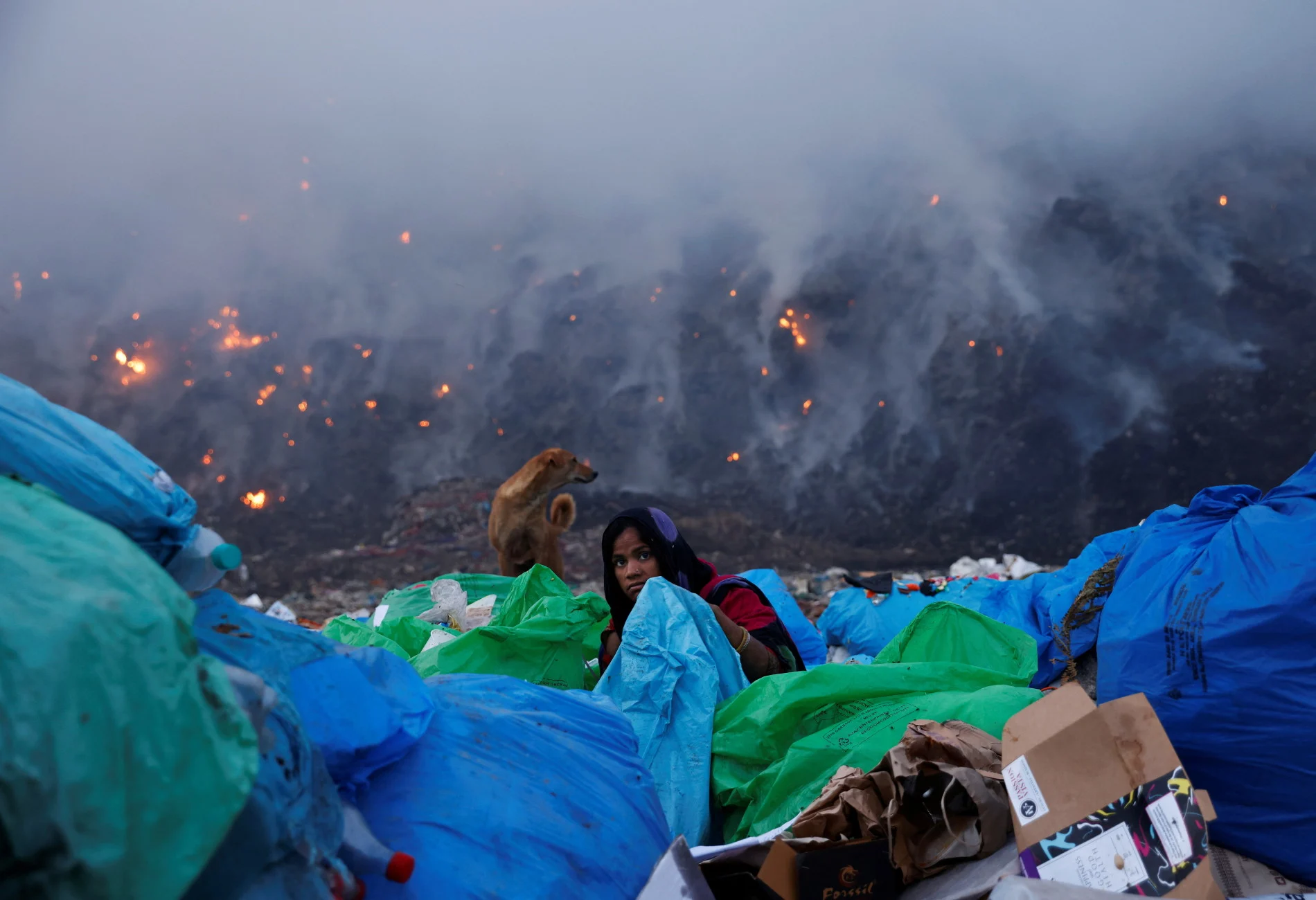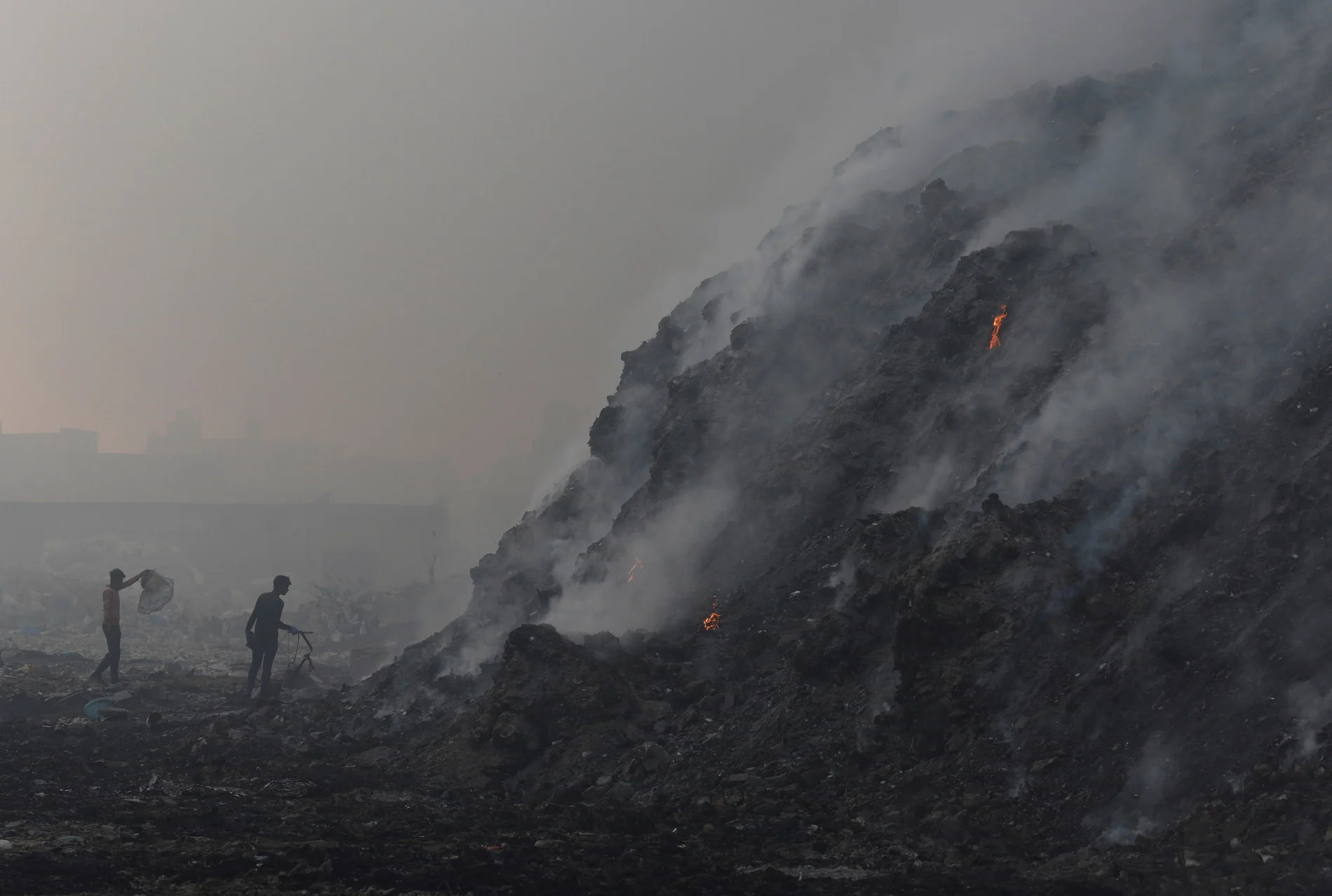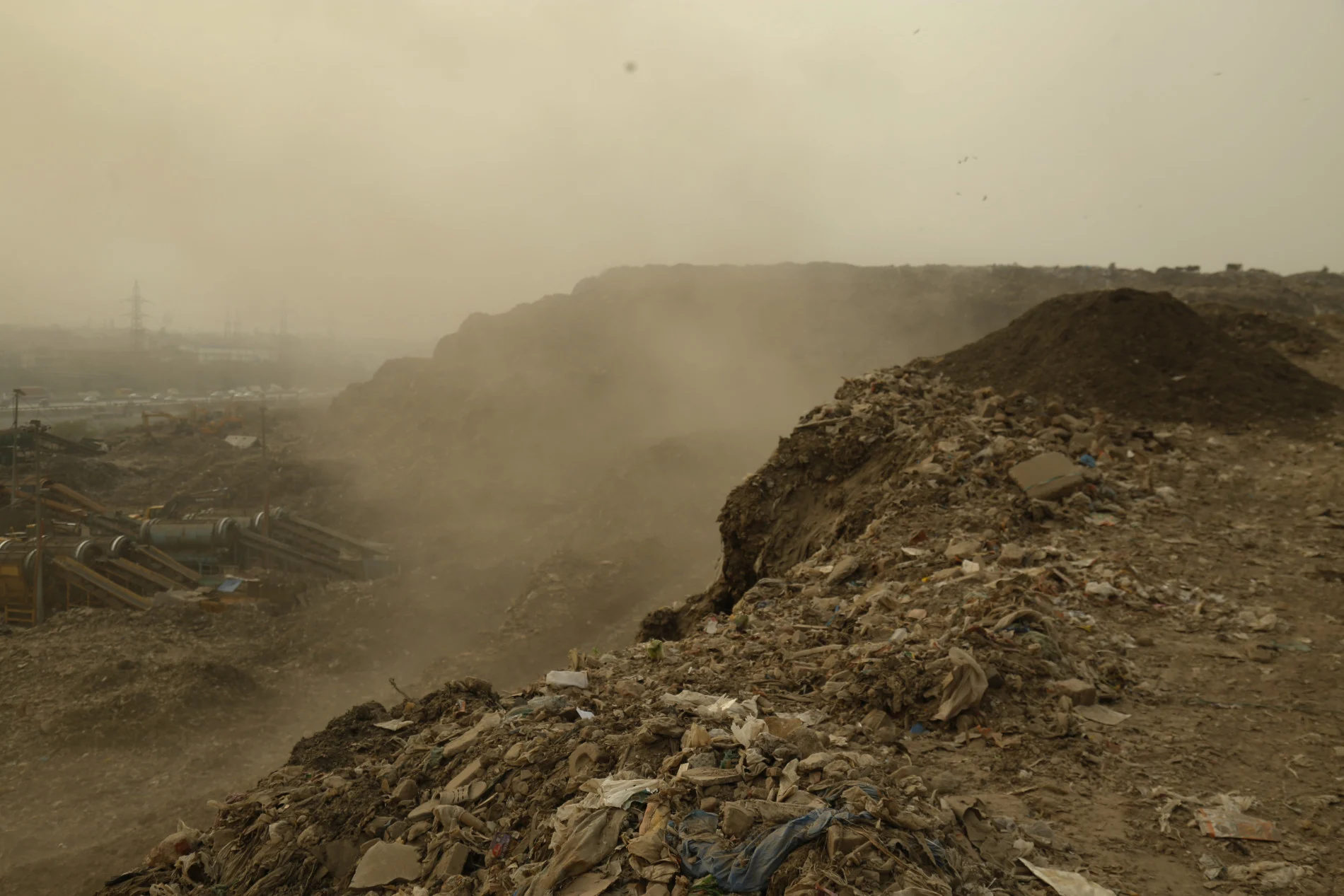
Hellish landfill fire burns for days in New Delhi amid India's heat wave
Temperatures approaching 50°C have triggered the worst electricity shortage that India has experienced in six years.
The sprawling Bhalswa landfill in Northern Delhi has been on fire since late April, according to Millennium Post, a news outlet based in New Delhi. A historic heat wave is underway in India and Pakistan and although experts have not yet confirmed the cause of the fire, many suspect the blaze is linked to the scorching hot temperatures.
Fire services have struggled to put out the flames and nearby communities are becoming increasingly concerned about the health hazards from the burning garbage.

Waste collectors look for recyclable materials as smoke billows from burning garbage at the Bhalswa landfill site in New Delhi, India, April 27, 2022. (REUTERS/ Adnan Abidi)
The smouldering landfill is just one of the countless challenges that over one billion people are facing during the heat wave. NASA states that over 300 large wildfires were burning in India on April 27 and mountain snow is rapidly melting in the northern regions of Uttarakhand and Himachal Pradesh.
“There's little relief in sight this week, with a ridge anchored over Pakistan and a trough over southern India. Next week there are signs of a trough descending from the northwest, which would bring much-needed relief across the area,” explained Tyler Hamilton, a meteorologist at The Weather Network.
On April 30, Jacobabad, Pakistan recorded a sweltering 49°C and Banda, India reached 47.2°C, as reported by The Guardian.

Bhalswa landfill in Delhi, India on May 3, 2022. The site has spread to more than 36 acres since 1994.(Reuters/ Haripriya Shaji/ Pacific Press/ Sipa USA)
In addition to the unfortunate atmospheric set-up and the current La Niña event, scientists say that the influence of climate change is apparent.
“The Arctic has been much warmer than normal. So when that happens, we also get some forces from the Arctic coming south-eastward into Pakistan and India," Raghu Murtugudde, a visiting research scientist at the University of Maryland's Earth System Science Interdisciplinary Center, said in an interview with CBC News.
"It's a deadly combination of what we call natural variability; things like El Niño and La Niña and anthropogenic warming, global warming. So together they are creating this heat wave, which is unprecedented. But this is what we expect from climate change: It loads the dice."
In addition to the extensive damages that crops, such as wheat, are enduring, NASA stated that India is facing its worst electricity shortage in six years due to the heavy electricity demand for air conditioning and agricultural needs.

Millions experienced temperatures above 40°C on April 27, 2022. (Joshua Stevens/ NASA)
To meet the domestic energy demand, the Indian government is considering reopening over 100 coal mines that were previously deemed financially unviable. Coal is the largest single fuel in the national energy mix and although there is positive momentum with the expansion of renewables in India, namely solar, coal consumption has steadily climbed over the years.
India is the second highest coal-producing nation after China and the third-largest global emitter of carbon dioxide. Despite the harsh reality impacts that coal usage has on the climate, the humanitarian impact of the historic heat wave calls for drastic measures to bring relief.
“Energy poverty is a major human and environmental crisis. A balanced energy mix with a high degree of physical safety, low environmental hazards and sustainable supply prospects is essential for poverty alleviation and energy security,” Shabbir Ahmad, postdoctoral research fellow at the Australian Institute of Business and Economics, stated in The Conversation.
“While renewable energy sources are in their infancy and facing many uncertainties, developing economies have a long way to go before they can completely abandon fossil fuel energy sources. Indeed, these countries need major structural reforms and risk-tolerant investment capital in the renewable sector if the twin goals of reduced carbon emissions and the elimination of energy poverty are to be achieved.”
With files from Reuters and CBC News
Thumbnail credit: REUTERS/ Adnan Abidi











